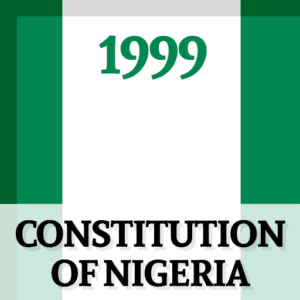Need for implementation of Nigeria’s ‘Decade of Gas Policy’
Nigeria’s ‘Decade of Gas Policy’ initiated by President Muhammadu Buhari’s administration should not be trashed by the incoming government led by President-elect Bola Ahmed Tinubu because it is a workable tool to reposition the nation’s gas industry.
Championed under the leadership of Chief Timipre Sylva, former Minister of State Petroleum, January 2021 to December 31, 2030, was declared as Nigeria’s Decade of Gas. Within this period, the government aspires to power the economy, foster gas utilisation, industrialise the country and address energy poverty.
The country is Africa’s largest gas reserve, yet the untamed energy crisis has continued to stare its ugly face on Nigerians and businesses.
According to the World Bank, Nigeria occupies an unenviable position as one of the top seven gas-flaring countries in the world. While the National Oil Spill Detection and Response Agency (NOSDRA) has succeeded in beating the war of fines, and sanctions on oil companies responsible for gas flaring, the country feasts on gas wastage.
One of the International Oil Companies, IOCs, had pledged to end routine gas flaring; Mr Victor Bamidele, Deputy Manager, Deepwater TotalEnergies E&P Nigeria, disclosed this on Wednesday at the ongoing Nigeria International Energy Summit, 2023, in Abuja.
No doubt there was hope when Buhari launched Nigeria’s decade of gas policy in 2021; however, less than 10 per cent of its objectives and targets have been achieved two years after.
Months back, while providing the policy’s performance updates during a session at the just concluded Sub-Saharan African International Petroleum Exhibition and Conference (SAIPEC) 2023 in Lagos, the Southwest Zonal Coordinator of the Nigerian Midstream and Downstream Petroleum Regulatory Authority (NMDPRA), Mr Ayo Cardoso, however, said some improvements had been recorded.
“So, if we look at some of the projections the government gave us, just like I had mentioned before – about 85 per cent of base increase yearly. What we have is just about 5 per cent,” he said.
Tracing the growth of gas facilities between 2017 and 2022, he explained that Liquefied Natural Gas (LNG) facilities were five in 2017 and 42 in 2022, while Compressed Natural Gas (CNG) facilities stood at 97 in 2017 and 112 as of 2022.
According to him, Liquefied Petroleum Gas (LPG) plants in 2017 “were 675, and in 2022, we had 13,038. LPG add-ons in the filling stations have grown little since 2017. It’s still battling between 500 and 585. So, from our calculation, we have not gone as far as the government expected us to go regarding the Decade of Gas.
Nigeria has potential 900 billion standard cubic feet (scf) of gas in the National Gas Flare Commercialisation Programme (NGFCP). Nigeria’s LNG industry has grown significantly, and the government was more interested in gas-to-power, just like other critical sectors, adding that about 70 per cent of the gas was to be dedicated to gas-to-power.
In this editorial, Newsdirect notes that the incoming government cannot afford to jettison Nigeria’s Decade of Gas Project; this is part of Buhari’s legacy to Tinubu.
Development within the oil and gas industry is long-term based, so this government must have the necessary stamina and resilience to carry on consistently.
An integral part of the process is the development of gas infrastructure, with the construction of the 614km Ajaokuta-Kaduna-Kano gas pipeline the number one starting point.
The goal is simple, to increase the domestic utilisation of LPG and CNG, commercialise gas flares, develop industrial gas markets and improve gas-to-power.
The government must sustain investment in building pipelines and distribution networks to reach residential and business areas and improve access to LPG.
Also, while the country has significant natural gas reserves, a lack of investment in the sector has led to low production of LPG and a hike in prices. It is time for the government to encourage investment in the industry to increase domestic production and thus curb the importation of LPG.
The government must provide a fertile working environment for domestic and foreign investments in the LNG industry.
Last, though the number of Nigerians using LNG, popularly known as cooking gas, widen daily, there is a need for the government to provide subsidy LNG to encourage more usage.




